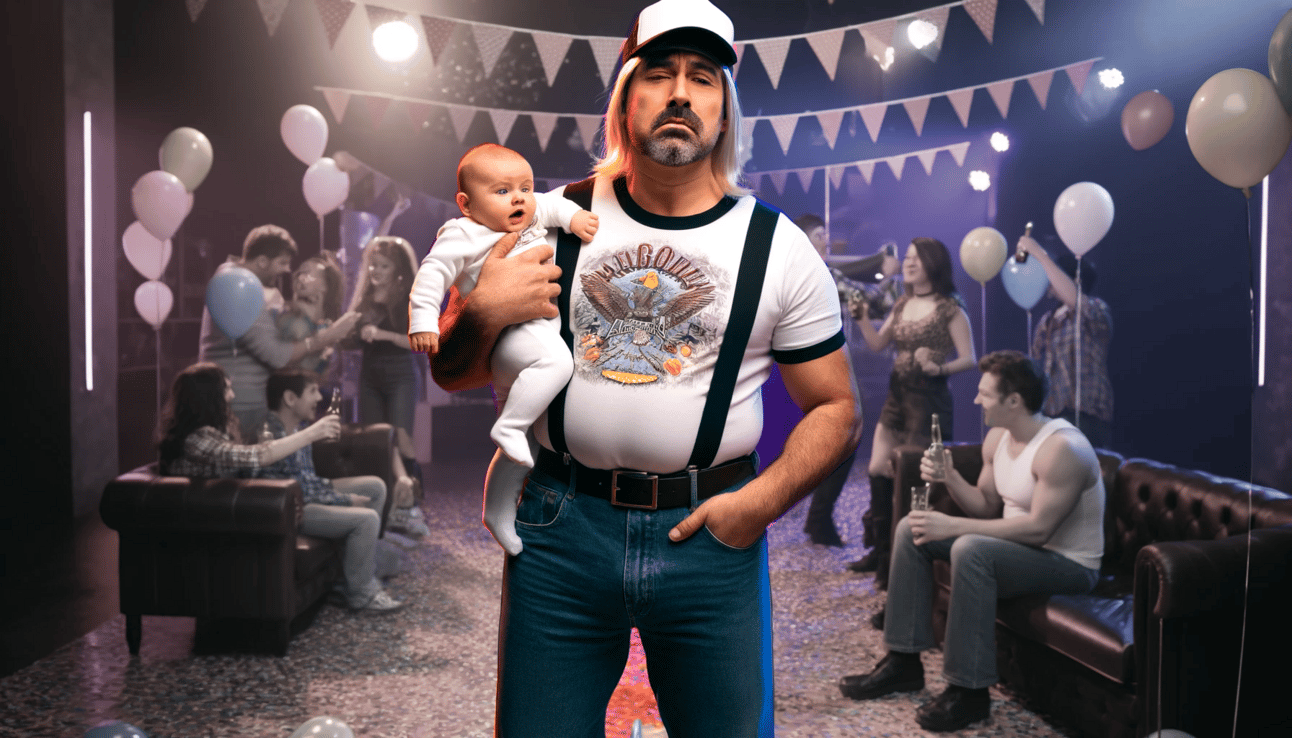
Another year, another Apple event, and I don’t care. At some point, you “age out” — a smartphone becomes a phone with bells and whistles, a laptop morphs into just a laptop, and ridiculous goggles that beam content into your eyeballs really are ridiculous goggles that beam content into your eyeballs, and make you look silly.
I know that sounds horribly ageist — “I’ve got a few dozen (plus!) years under my belt, so I see the world clearer than younger folk” — but I have and I do, in some ways.
Admittedly, my generation doesn’t fare too well in big areas like mental health or work-life balance or, from what I hear about dating apps, easy sexual opportunities. But, when you’re old enough to know the feel of a doctor’s finger, or worse, the staff at your nearest garden store (their names, not fingers), you start to see through the small things. And consumer tech is a small thing, no matter how grandiose the marketing hype, or charismatic the keynote speakers.
And actually, scratch that. Now that I think about it, consumer tech might be the death of some small things. Christmas cards, for example, seem to be fewer every year, and Londoners have lost their habit of leaving neatly folded newspapers on train seats for the next passenger. And holiday snaps, stone me, holiday snaps — you don’t see them anymore, not really.
We used to gather in living-rooms and kitchens so that aunts and uncles could inflict photos of Mykonos on us, each one ruined by goofy poses and a dull story about how it was taken. The experience was awful and boring and charming and wonderful, and it doesn’t happen anymore.
Holiday photos are great now, too great. Everyone’s worked out their best angles through years of selfies and the fear of looking bad on social media, cameras auto-focus and auto-correct, and moments are captured, not as wine-stained glimpses of life’s brilliance, but as a magazine editor’s idea of perfection. And you can’t relate to perfection because you know it’s horse poop.
You know from your own “perfect” photos that between the camera and that beautiful Greek sunset was a sweaty, sun-fatigued human having a genuinely happy and joy-filled time. But, it doesn’t look like that because such moments ought to look, well, genuine. They ought to have blemishes and imperfections and some real humanity. They need to have things wrong with them in order to look right.
Social media used to be choked full of things that looked right. Not so very long ago, hundreds of millions of younger versions of me were hooked on real updates about our loved ones’ lives. We used to hear what our cousins were doing in boring detail, and how proud our friend’s sister was to see him play guitar on stage, and there were just so many photos of drunken nights that we used to set as our profile pictures. We used to wear the warts of our real lives with digital pride.
Somewhere along the line, things changed, and our digital selves became manufactured representations of our “best” selves, and we’re to blame for it. Yes, commercial decisions at social media companies did happen— advertisers had to be accommodated, and influencers had to be born for product placements to happen — but the real perpetrator of social media’s decline was time. We got older.
Social media’s golden age was in the mid-2000's, when people like me were young and had enough energy and (just about) money to devote ourselves to having fun. Crucially, there was nobody to tell us not to. The closest thing we had to influencers were parents, who mostly wanted us to enjoy life before making grandchildren, and bosses, who almost invariably equated team-building with drinking sessions.
So we drank, and we dabbled, and we caught the clap now and then, and we posted about it on social media in a race to be the most fun person on the internet. And we could post as much debauchery as we liked because social media was ours — we were the first digital generation. No older cohort had set any rules, so we set them — they were lax — and our rules became the platforms’ rules, at least informally. Then we aged.
It stopped being cool to get wasted every Thursday, Friday, and Saturday. We had to think about how our social media activity would affect job promotions. We had to pay mortgages (sorry, I know housing is a sore point). And our parents got their wish — we made babies and nobody wants to explain to their children that a photo of daddy with dilated pupils was taken during an eye exam, so we started behaving ourselves.
And just like the first phase of social media was driven by us falling over each other to be the most fun, the next phase was driven by us stomping on each other to be the most grown-up. Our Facebook profiles were rejigged to look like our LinkedIn profiles, photos from nights out were replaced with photos from professional networking events, and doctors advised us to take our health seriously, so we posted about our fitness journeys.
We became digitally nauseating, and since we were the ones who had set the rules in the first place, it was only natural that we’d rewrite them to suit our new-found maturity. I think younger people messed up big time by following those new rules. Too many of them (or you, if you’ve never known good social media) saw our best-behaviour personas and thought that was how adults conducted themselves.
Which is true, sort of, and a bit sad, and I think this is why cultural revolutions are rare — it is normal for younger people to emulate the generation above them. Most do, so those that don’t have to create a new subculture where they can express themselves and set their own rules, and only every so often does that subculture hit the zeitgeist at the right note to birth the Beatles.
I was lucky, or unlucky, enough to find myself in the largest subculture of history so far — the best years of social media. We didn’t just get to express ourselves to each other; we were the first generation who got to express ourselves, en masse, to the world. And we got to set the rules on the lion’s share of the internet, and we squandered it, ultimately.
So, if you’re in the current cohort of youth (Gen Z, I think), please do yourselves a favour — tear up the digital rules and write new ones.

